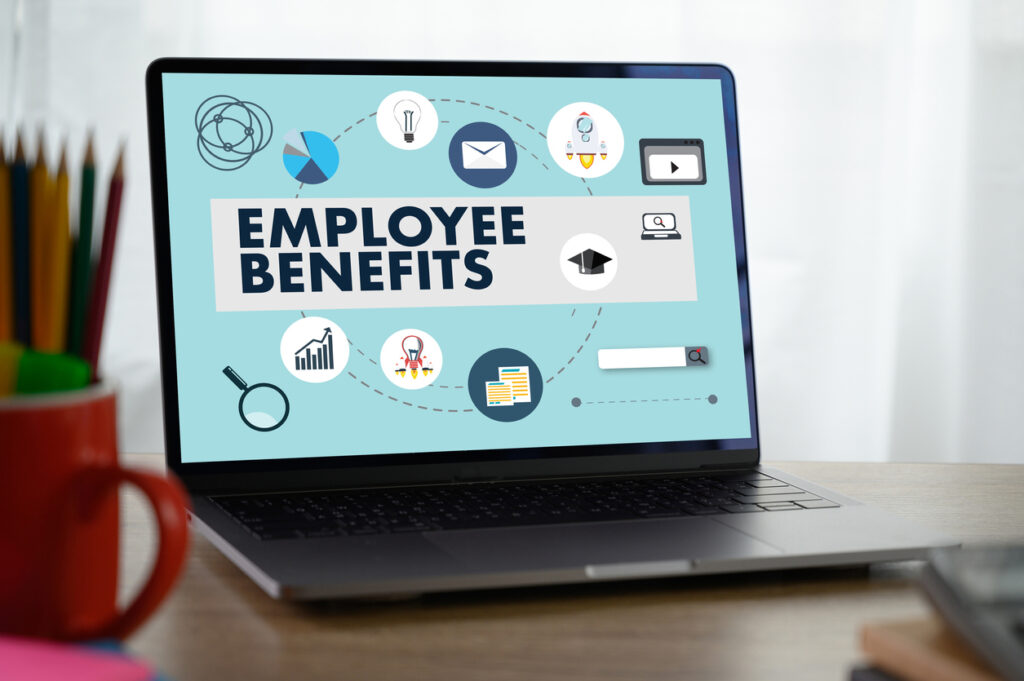The past 12 months have challenged businesses on almost all fronts. There’s now light at the end of the tunnel as we prepare for a return to the office, but for businesses to stay successful and competitive, life after Covid-19 cannot simply be a return to life before the pandemic. Employee expectations of a job or career have fundamentally changed, transformed by a year and a half of upheaval and uncertainty. As a result, businesses need to put serious thought into what they are offering their employees besides a salary.
Post-pandemic benefits packages will quickly evolve towards personalised programmes, taking each employee as the individual they are.
This is not a question of corporate social responsibility or a marketing tactic to show which businesses ‘care’ about their staff the most. What a business is able to offer beyond a salary will increasingly be the difference in both talent retention and hiring competitiveness. In other words, it will be critical to business performance and survival.
Remote working works
The past year proved beyond doubt that for the vast majority of businesses, remote work is a viable option. Businesses, on the whole, showed that they are resourceful enough to survive and thrive without a central office, while employees demonstrated that they could be trusted to do their jobs without the in-person oversight previously thought so vital.
Of course, the benefits of an office are well documented, with creativity, collaboration and social cohesion in particular benefitting from face-to-face interaction at work. Employees don’t expect to have to return to the rigid, five-days-a-week, 9-5 office-based culture of before, however. Flexibility provides significant benefits to the employee without any major loss to the employer. As a result, hybrid working models will quickly become the norm and candidates in the hiring market will be far less inclined to take a role with no flexibility.
Mental health isn’t a perk
When you mention employee benefits, it’s expected that people will think of perks like gym membership discounts, company cars or drinks at the bar – all of which are nice additions to sweeten the deal. Considering employee welfare as solved by a collection of perks misses the point entirely, however. Mental health is not a perk or an optional extra – it must be central to any employment package.
One in six workers will experience mental ill health in their lives, adding up to a problem that costs businesses an average of £1,300 per employee every year. Nor is this just a question of those already diagnosed, or even suffering yet. Deloitte estimates presenteeism – attending work when not well or with poor mental health – to cost employers twice as much in lost work or productivity as absence due to mental health. With a problem this widespread, businesses must play their part in both prevention and helping employees find solutions.
The pandemic has understandably exacerbated the mental health crisis globally, but this is a long-term problem that requires a long-term solution. Permanent support is required, both in a preventative and curative context. Offering services, such as counselling and therapy, for those in need should be paired with ways to help staff protect their mental health before it becomes a problem. Coaching, for example, is proven to help reduce stress and anxiety even for those who aren’t considered at risk of mental ill health.
Business is in the dark
One of the major challenges facing businesses as they prepare to return to the office is that they’re completely out of the loop. Many employees have endured difficult times over the past 18 months, whether with home schooling, isolation or ill health in their families. The problem for business leaders and HR teams is that they often have no idea what each employee has been through.
Businesses should start with an anonymous assessment of their employees’ individual needs. More than likely, this survey will reveal a vast range of situations and conditions that staff members are working through, particularly for larger businesses where individual experiences are more easily overlooked. Any system or package that takes the ‘one size fits all’ mindset will inevitably fail to serve those at the extreme ends of situations – those who often need the support the most.
Made to measure
Post-pandemic benefits packages will quickly evolve towards personalised programmes, taking each employee as the individual they are. Perks will come in personalised, mix-and-match services that allow each person to build the benefits that best suit them, while tailored offerings, like counselling or digital coaching, will be at the heart of mental health provision.
This ability for a business to establish an individualised approach, with a neutral and independent third party enables each employee the space and privacy to work on what they want. Coaching in particular is strengths-based, so allows individuals to reframe and reappraise their challenges and focus specifically on what they do well, in a way that standardised offerings cannot.
[cm_form form_id=’cm_65a14c3f5da64′]
While business will never be able to tackle all of the causes of stress and mental ill health, offering professional, personalised support at work will be vital for easing the burden and reducing the risk of burnout. As people’s lives and the workplace begin the return to normality, this new focus on mental health will be a key step forward in ensuring a smooth transition.
Interested in this topic? Read The future of employee benefits: flexible, personalised, digital.







